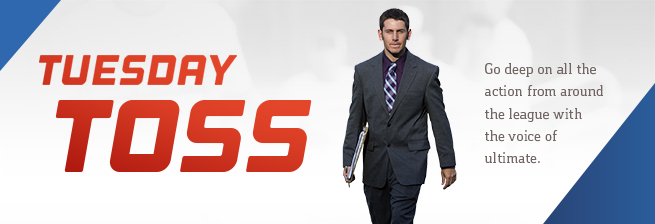September 23, 2025
By Evan Lepler
Did you realize that the Ultimate Frisbee Association is now a teenager?
From its early and uncertain days as an infant and toddler, the UFA—now 13 and a half years old—has gradually matured into a significantly more stable and reliable product. Like most middle schoolers, things certainly can still feel unpredictable and turbulent, and there’s definitely a lot to learn, refine, and polish as the league continues to grow. But with every new milestone—Championship Weekend, which wrapped up one month ago today, certainly felt special in so many ways—there’s even more personality and identity to reflect upon.
In sports and in life, it’s always important to celebrate achievement and keep pushing forward. Specific prizes may vary in meaning, but positive recognition is rarely unwelcome.
On that front, the 2025 UFA Awards will be unveiled next week, saluting the top rookies, toughest defenders, and superior all-around players in the league. While these somewhat subjective honors might never be absolutely perfect, they are important distinctions when it comes to evaluating the careers of the best individuals across different eras.
Through the 13-season history of the Association, over 3,500 players have competed in at least one game, and a couple hundred of those competitors have received All-UFA status.
But at this exact moment, only eight individuals have ever been named MVP.
Today’s Toss—in advance of the upcoming awards announcements—shall dive into the eight superstars who have received the league’s premier individual prize.
The Full Field Layout
Firstly, let’s state the obvious: everyone covets winning a championship more than being named MVP. Team success is the ultimate glory, and reaching the mountaintop with your teammates remains every athlete’s primary goal.
But with that caveat out of the way, the annual MVP Award also matters a great deal.
It’s always been a delicate challenge to properly evaluate and praise individual success in our league, which remains in its adolescence in terms of strategy, stats, and emerging analytics as well. But frisbee greatness can be breathtaking and brilliant, and watching the league’s greatest players rise above their peers is both magical and meaningful.
The MVP Award will be bestowed for the 13th time in UFA history next week, and it’s possible we shall see the first three-time winner, as Boston’s Jeff Babbitt, who also earned the honor in 2023 and 2024, is arguably in the mix to potentially make it three straight.
At the moment, however, the 12 awards have been divvied up somewhat symmetrically among eight players. Four individuals—Jonathan “Goose” Helton, Beau Kittredge, Ben Jagt, and Jeff Babbitt—have all taken two MVP Awards. Four others—Dylan Tunnell, Jonathan Nethercutt, Rowan McDonnell, and Ryan Osgar—each have one.
That’s the current MVP club, as it stands ahead of next week’s 2025 proclamation.
The Early Years (2012-2015)
It’s entirely possible that some UFA fans today are not overly familiar with Goose Helton or Beau Kittredge, the two players that claimed the first four MVPs.
Helton was not a particularly well-known player when he joined the Indianapolis AlleyCats in 2012. He had competed for Wheaton College—far from a frisbee powerhouse—and was living in Chicago when he heard about the first ever professional ultimate tryouts.
True story: he was initially super skeptical, concerned that he might be getting scammed.
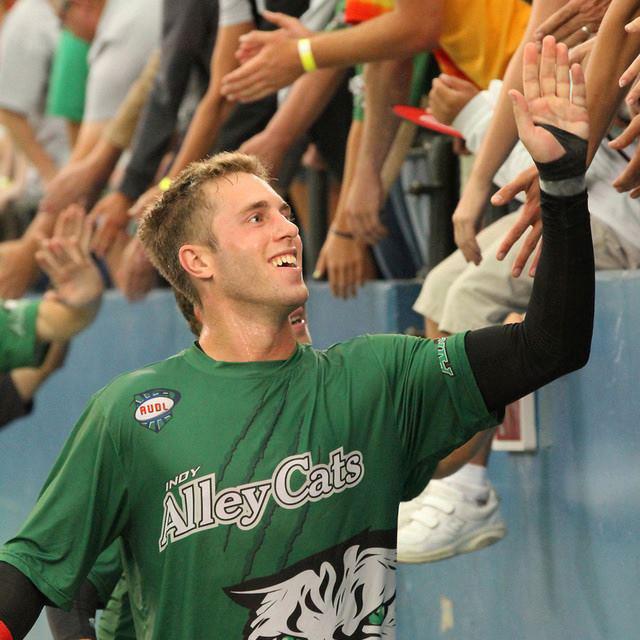
“Some people thought it was a hoax,” said Helton, back in 2019. “I talked to just enough people to become convinced that they were actually holding a tryout.”
The early days of the UFA—then known as the AUDL—were light-years away from what the league is today. Completion percentages were much lower, turnover tallies were far higher, and the action was far more sloppy and inconsistent, leading to some numbers that looked like they came from a video game.
Helton finished the 2012 season with 64 assists, 34 goals, 46 blocks, and 52 throwaways. Those assist and block totals both ranked number one in the league, and he also finished 11th in goals (and third in throwaways). While the AlleyCats fell short against the Philadelphia Spinners in the league’s first championship game, Helton was a pretty clear MVP of that inaugural season.
No longer unknown, Helton immediately became one of the marquee signings for the Chicago franchise that joined the league in 2013. In many ways, his numbers in his sophomore season—47 assists, 26 goals, 42 blocks, and 34 throwaways—were not quite as eye-popping, but Helton was voted MVP in year two as well.
The league overall shifted dramatically in 2014 with the founding of the West Division. Sure, technically the AlleyCats, Bluegrass Revolution, Columbus Cranes, and Detroit Mechanix were also the “West Division” in 2012, but the new West went all the way to the Pacific Ocean, representing an important step in the league’s continued expansion.
When Kittredge signed with the Spiders, he immediately became the league’s biggest name. He famously ‘jumped over a guy’ during a 2006 college game with the University of Colorado, and over the course of the ensuing decade he would become the greatest champion of his era. He may have already been in his 30s when he joined the UFA, but he still had plenty of fuel and motivation left in his tank.

Kittredge compiled all the counting stats you could want—he finished his first UFA season tied for sixth in goals and second in blocks—but far beyond the numbers, the iconic Alaskan passed the eye test. He was the fastest and most physically dominant competitor in the sport, with a motor, confidence, and determined spirit that ranked second to none.
He also—by good fortune, his infinite wisdom, or a little of both—surrounded himself with superior talent. In his six years in the league, playing with four different franchises, he won five titles and never fell short of Championship Weekend.
In those first two years with the Spiders, he was still at the absolute peak of his powers. He caught a career-high 68 goals in 2015, while dishing 37 assists and producing 26 blocks. He also led the league in points played that season, with 451, a number that still stands as the third-most points played in a season in UFA history.
Passing the Torch (2016-2018)
Kittredge remained one of the league’s elite stars throughout the second half of the 2010s, however injuries and age began to catch up with him. He still won championships, making memorable plays in critical moments, but he fell out of the MVP mix starting in 2016, at age 33.
But one of his former Team USA World Games teammates was able to take the MVP torch.
If the kids today aren’t familiar with Dylan Tunnell, that’s just plain wrong. In his time, he was one of the premier combinations of size, speed, and skill that the sport has ever seen. He debuted in the UFA at age 31 in 2015, collecting 62 scores for the first edition of the Atlanta Hustle, a team that went 10-4 but somehow did not make the playoffs.
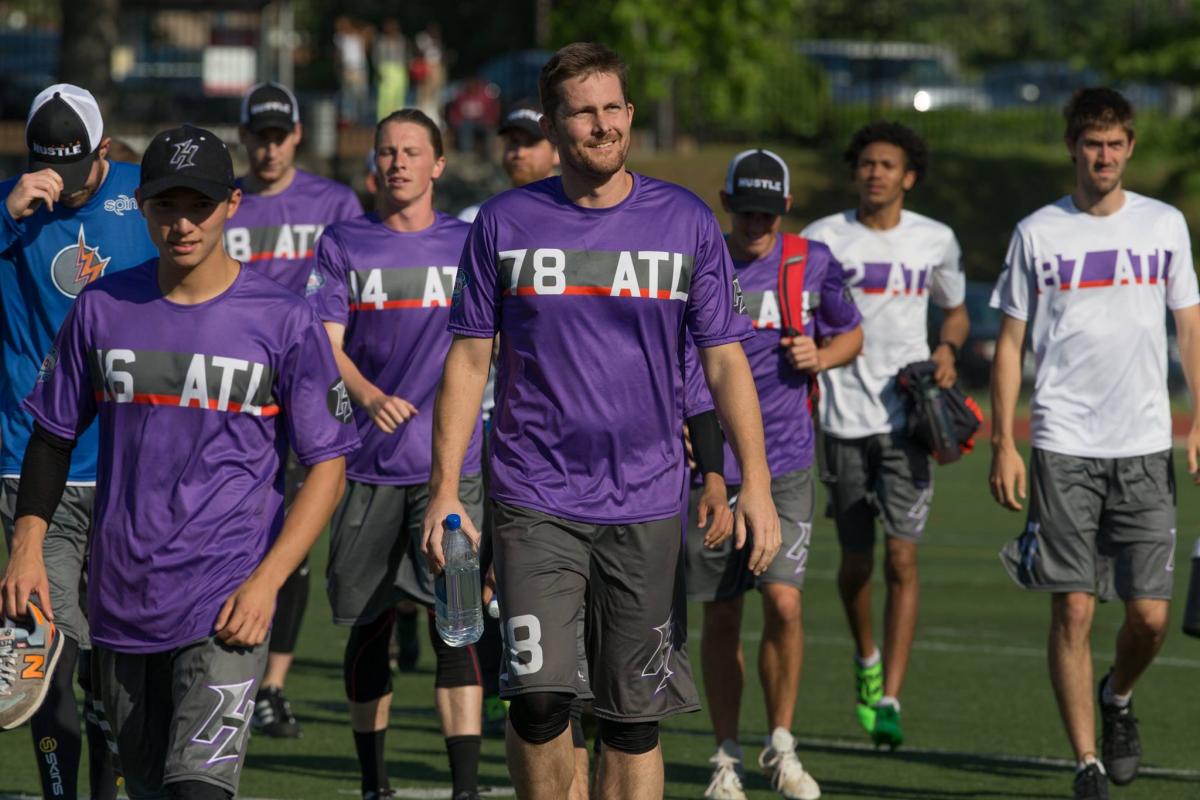
One year later, as the expansion superteam in Dallas stole many of the headlines, Tunnell enjoyed his greatest professional season, with 74 assists, 20 goals, and five blocks. If we were tracking yardage stats back in 2016, his numbers would be even more impressive, as he completed nearly 93 percent of his throws while frequently firing huge hucks.
Speaking of huge hucks, the 2017 MVP went to Jonathan Nethercutt, who carried the Flyers to a 13-1 regular season record while leading the league with nearly seven assists per game. A college champion two years prior at the University of North Carolina, Nethercutt erupted for 82 assists as a 25-year-old superstar, playing with the bushiest beard of his career. Astonishingly, he tossed a career-high 14 assists and went 51-for-52 against the defending champs on May 13, 2017, as the Flyers defeated Dallas for the first time.
Along with his dynamic throws, Nethercutt’s leadership and clutch playmaking should not be overlooked. In several close games, he was the difference in the deciding moments, and he also played with a swagger and style that’s rarely been replicated since. Between no-look throws, behind-the-back flicks, goal-scoring greatests, and buzzer-beating blocks, Nethercutt’s visionary style clearly set him above the rest of the pack during his special ’17 campaign.
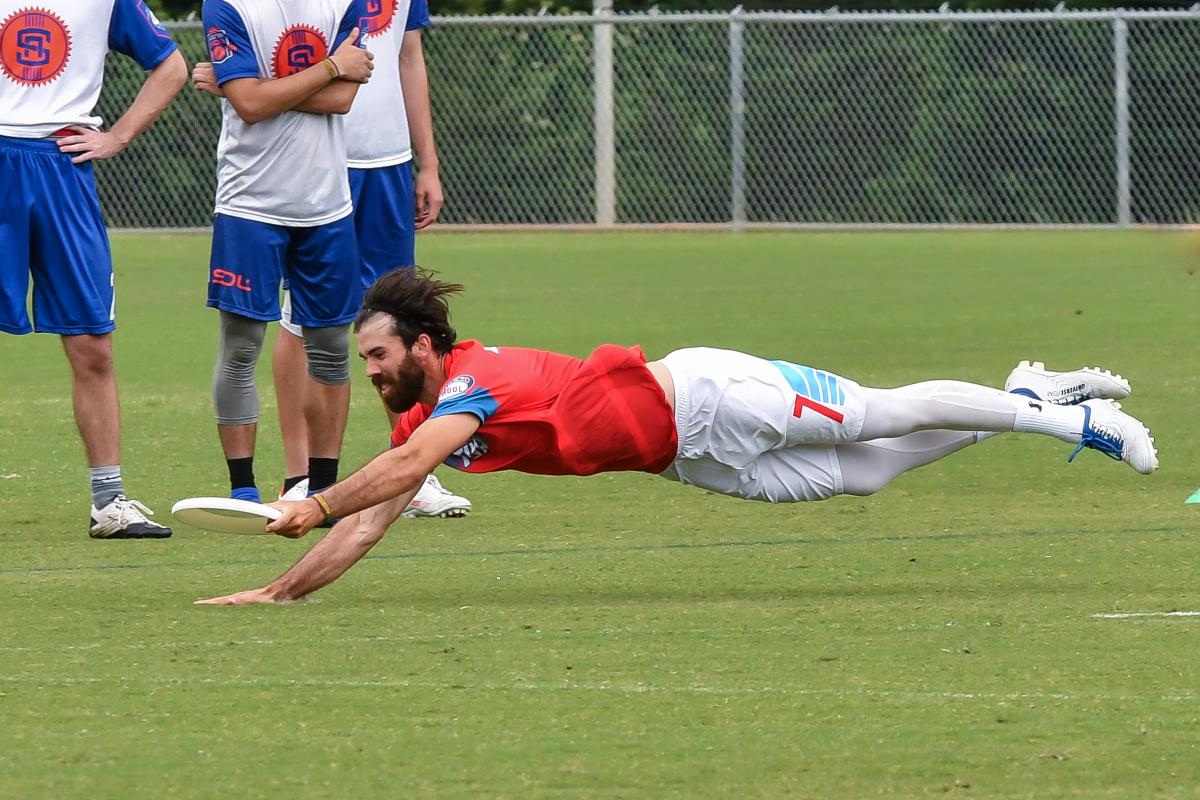
Interestingly, one of the biggest reasons that DC’s Rowan McDonnell won the 2018 MVP honor was his performance against Nethercutt and the Flyers on May 12, 2018. Almost exactly a year after Nethercutt’s 14-assist masterpiece, Rowan dueled against the Carolina star in a dazzling back-and-forth battle. McDonnell led the Breeze with a career-high 10 goals, two assists, and two blocks, as DC narrowly prevailed 25-24.
That was McDonnell’s third year in the league, and by this time, he had blossomed into a gleaming multidimensional threat. Statistically, his numbers were impressive, though not overwhelming—he finished 15th in assists, 23rd in goals, and just outside of the top 50 in blocks—but the whole package was absolutely MVP worthy. His plus/minus was tied for fourth in the league, and his creativity, energy, and leadership also factored in.
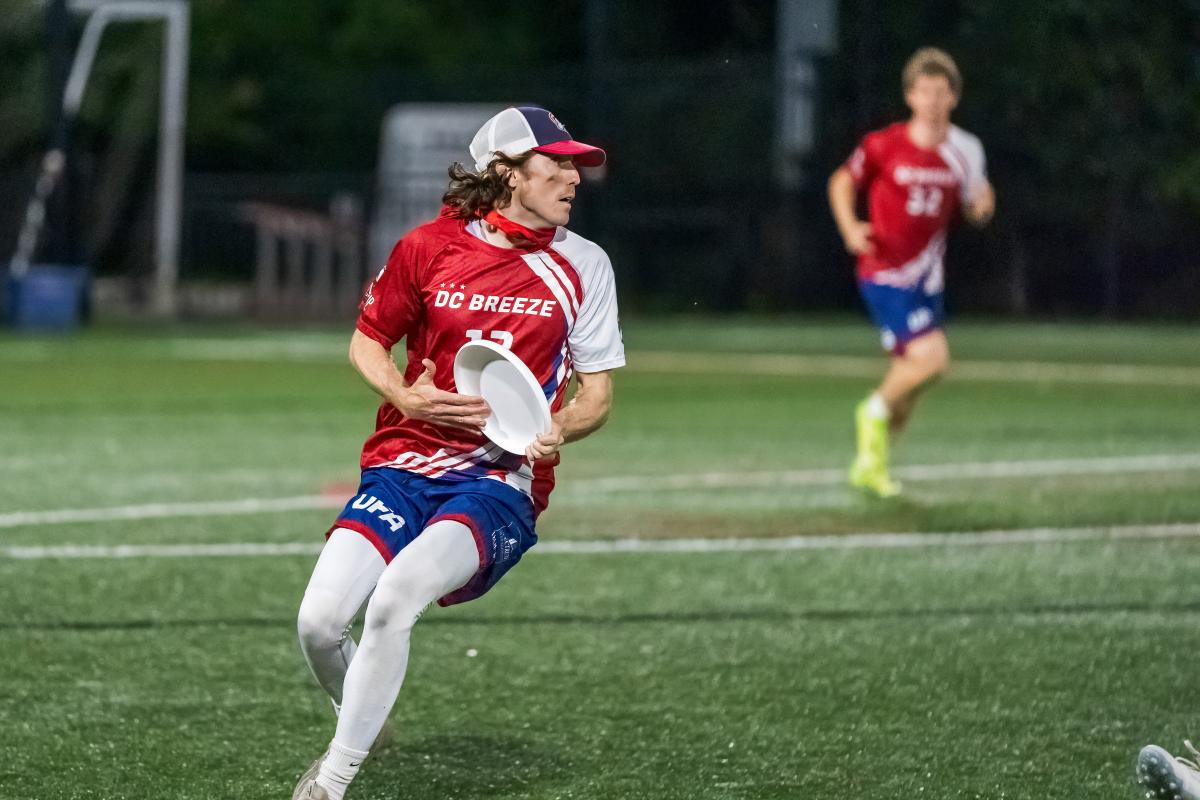
It was completely stunning when, amidst a teeming monsoon, McDonnell’s Breeze were upset by New York in the opening round of the 2018 playoffs. If not for that historic downpour—or the continued rise of a new Empire—McDonnell could have also joined the crew with multiple MVPs.
The New York Era (2019-23)
McDonnell arguably was even better in 2019 than he was the year before, but the New York Empire became the top story in the last season of the decade, beginning a dynasty that would see the franchise win three of the next four championships and all four MVP awards during that time span.
Ben Jagt had been a beast since he first joined the UFA as a 21-year-old college kid in 2014. He played three years for the Minnesota Wind Chill before moving to New York, where he continued to evolve into the league’s most dominant downfield threat.
Jagt had a decent case to be the MVP in ’18, with 66 assists, 55 goals, and 14 blocks, but the Empire’s uneven season overall prompted voters to veer toward McDonnell. In 2019, however, there was no doubt that Jagt was the league’s premier talent.
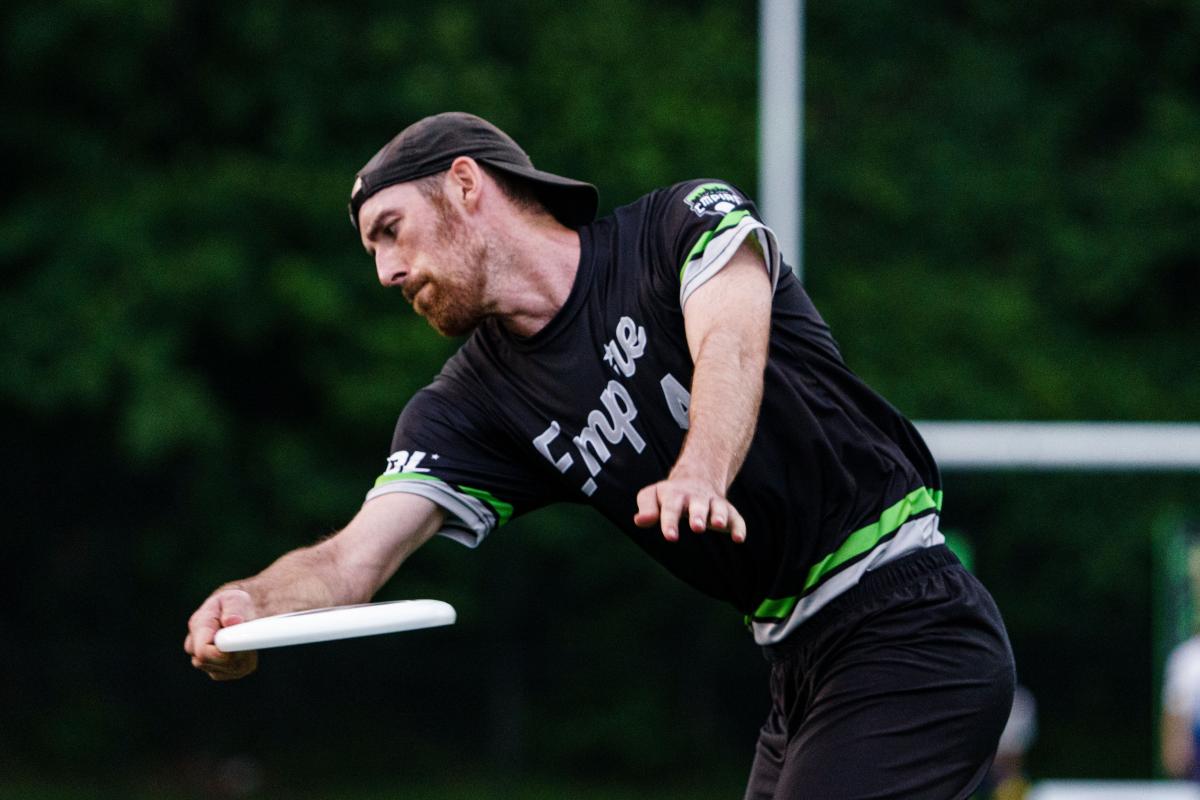
He finished the ’19 campaign with 67 goals, 64 assists, and 14 blocks, while leading the Empire to a perfect 15-0 record and the franchise’s first championship. Two years later—after the pandemic unfortunately canceled the 2020 season—Jagt followed up his first MVP with another dazzling display: 63 goals, 55 assists, and 20 blocks in 2021, with a plus-minus of 107 that hasn’t been matched by anyone in the four years since.
Even though the Empire fell short of the championship in ’21, there was little debate about Jagt deserving the award for a second straight season. A more interesting conversation is how Jagt’s two-season run compares to the earlier back-to-back MVP journeys for Helton and Kittredge. Beau has the hammer when it comes also winning the title in both of his MVP seasons, but Jagt’s statistical supremacy during those two years may not soon be matched again.
And here’s where it probably makes sense to mention a major elephant that’s quietly lurking in this room. While defensive dominance and playmaking in pursuit of blocks absolutely matter, it’s tough to say the MVP is not generally an offensive award. In that vein, perhaps it makes sense that we bestow an MVP and a Defensive Player of the Year Award, while there is no specific Offensive Player of the Year Award.
In 2022, Jagt switched over to D-line midway through the season. He still was a force, but his numbers all dipped, falling from extraordinarily jaw-dropping to just being in the realm of very, very good. And with more oxygen and opportunity available on the Empire O-line, it was Jagt’s University of Minnesota college teammate that stepped up his game to meet the MVP moment.
It’s very possible that Ryan Osgar enjoyed the finest throwing season in UFA history in 2022. He finished with 72 assists, 43 goals, and completed 22 of his 24 hucks. He totaled the third-most receiving yards and consistently made plays downfield, but I will remember his MVP journey most for the artistry in his throws, epitomized by his confident demeanor and pinpoint delivery.
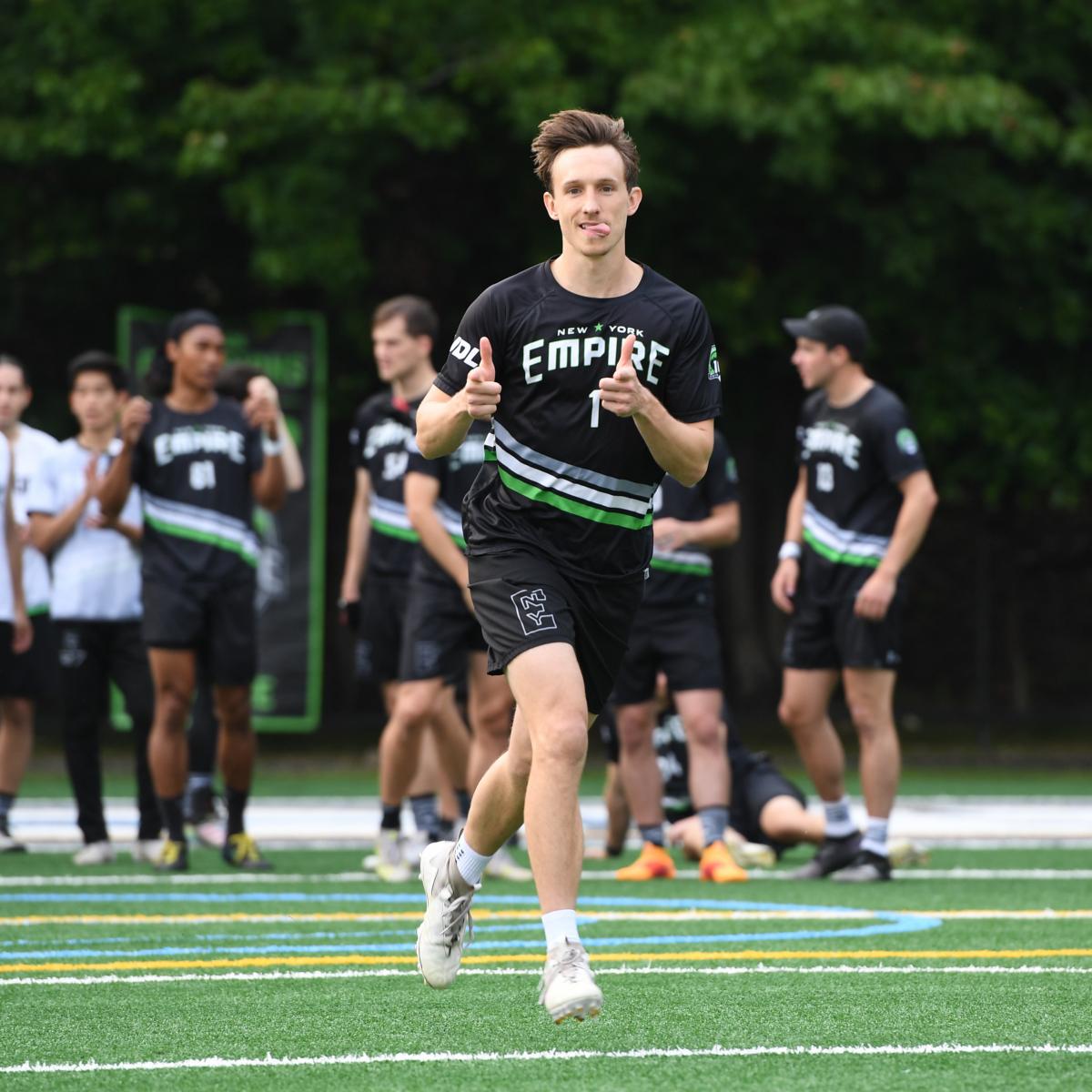
And in the playoffs, when his opponents seemed determined not to let Osgar beat them with his perfect puts, he took over games as a dominant receiver, finishing the ’22 postseason with 17 goals and five assists. It was the type of performance that cemented his MVP status, illustrating that he could bring value far beyond just being the best thrower, as if that wasn’t nearly enough on its own.
To his credit, Osgar would also certainly heap plenty of praise on his teammates during that ’22 season, when the Empire offense was virtually unstoppable. Many of his hucks were positively perfect, while others were hauled in by his exceptional cadre of deep targets.
By chance, have you heard of a guy named Jeff Babbitt?
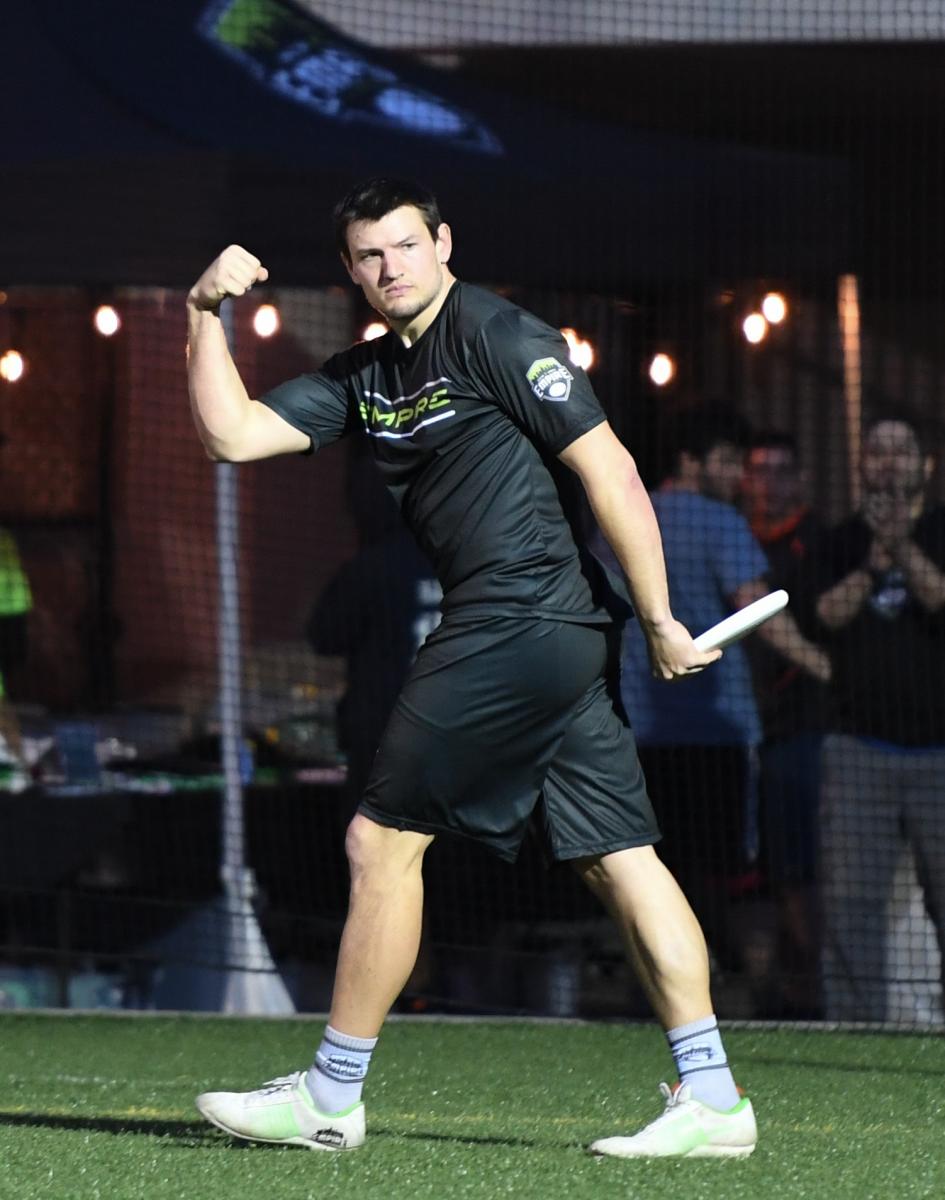
Babbitt moved over to the Empire O-line when Jagt shifted to D, and it’s hard to fathom a smoother transition of two great players trading places. After producing 57 goals in ’22, Babbitt led the league with 60 goals, along with 15 blocks, in 2023. He quickly reminded everyone why he’s been the most feared red-zone cutter in the sport for much of his career, scoring seemingly at will against any defender who dared to try and stop him. Furthermore, his end-of-quarter prowess, which has been pretty consistent since he entered the UFA in 2016, continued to shine as another weapon that foes had to worry about.
The 2023 MVP voting came down to Babbitt and Osgar, with the former taking the honor and the latter finishing second. It could have probably gone either way.
The Fall of the Empire (2024-Present)
In the span of a stunning couple of weeks prior to the 2024 season, the New York Empire lost two MVPs.
Osgar, feeling burnt out from many years of dedicating so much of his life to the sport, decided to step away. Babbitt, dismayed by contract negotiations that went sour, chose to leave New York and sign with Boston. Sure, the Empire still had Jagt and several other all-star caliber talents, but losing two MVPs right before the season would be really tough for any team to overcome.
The Empire still had a respectable 8-4 season, but considering the team had gone 46-2 in the previous four years, the drop-off was noticeable. Meanwhile, Babbitt showed no signs of any drop-off in Boston.
The revenge tour included 43 goals and 22 blocks, but his playoff buzzer-beater to end the Empire’s season was the singular moment that shined above everything else in this particular story. He got the best of all his old friends and teammates in the most dramatic fashion, and in winning his second straight MVP award, he likely made the Empire regret their choice to let him get away.
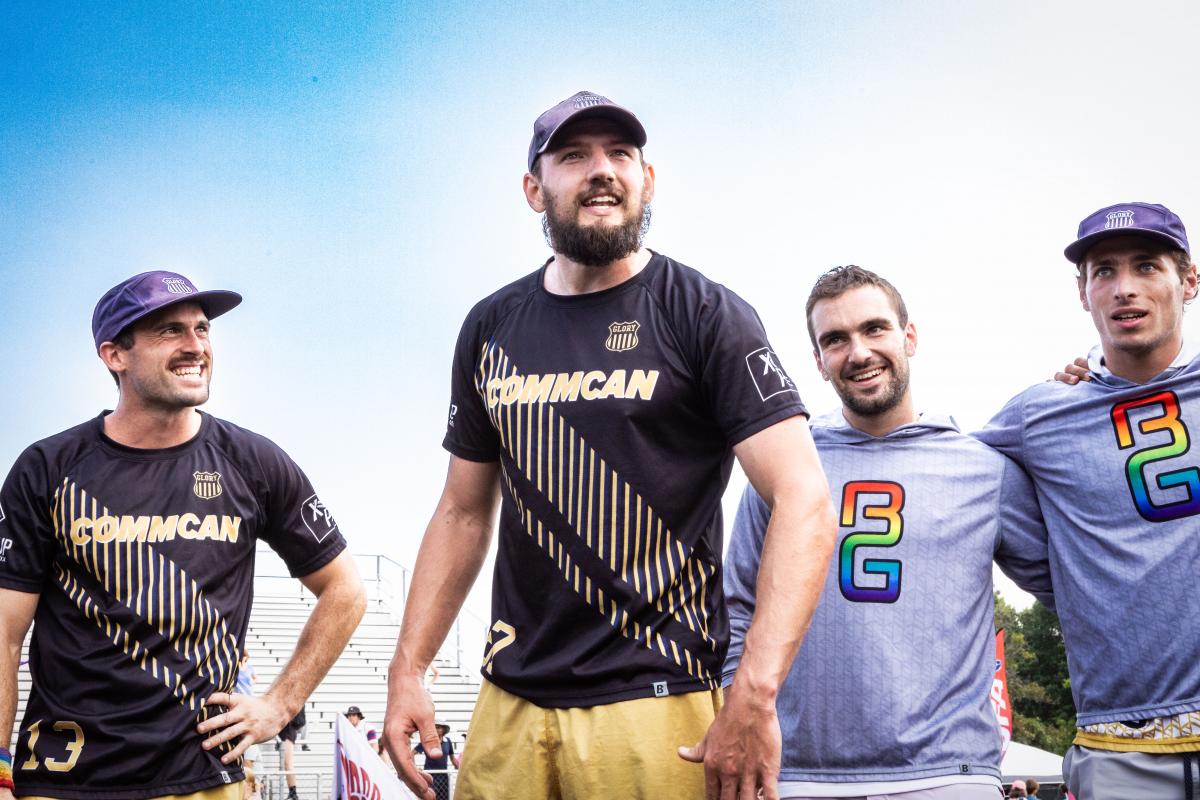
Next week, either Babbitt or another deserving individual will claim the 2025 MVP honor. As Sam Weiger astutely chronicled right before Championship Weekend, the race felt pretty wide open, with numerous candidates worthy of the prestigious distinction.
It remains to be seen whether Babbitt will earn a third consecutive MVP, but while the Empire again teetered to another somewhat disappointing 7-5 regular season, Boston went all the way, winning the franchise’s first title last month in Madison. In the process, Babbitt won his fourth championship, moving within one of Kittredge on the all-time title list. The list of players who’ve won at least four titles—for the moment, just Kittredge and Babbitt—is even more exclusive than the list of two-time MVPs.
As the Ultimate Frisbee Association keeps growing, these lists will continue to evolve, and new superstars will stake their claims to being amongst the all-time best. Hopefully, around 2050, we’ll have almost four decades of pro frisbee history to discuss, dissect, and debate. The level of play will almost certainly continue to rise, and brilliant ultimate could look completely different in a quarter-century compared to where it is right now.
But let’s not ever forget about the great players that helped build this league, the best of the best from the first 12 seasons. Regardless of what the future holds, we’ve witnessed some pretty incredible players, moments, and achievements.
It’s been a remarkable ride already, and in so many ways, it feels like pro ultimate’s story is just getting started.







